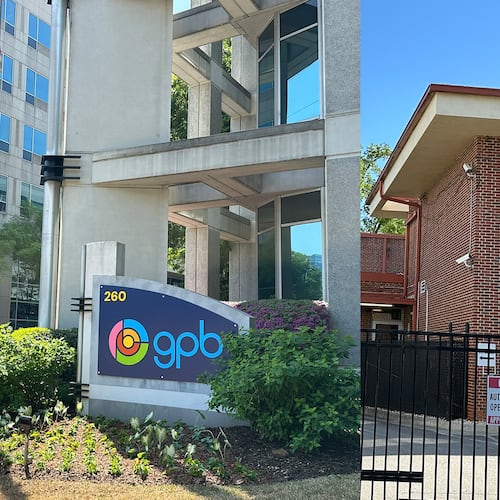MEET DANE ELLISON
Job: CEO of RE/MAX Regional Services
Age: 47
Hometown: Gulf Shores, Ala.
Now lives: Dallas, Ga.
Education: B.A., University of South Alabama.
Family: Married
Hobbies: Avid runner who has competed in Ironman Triathlons; sport fishing
Reading: "The 21 Irrefutable Laws of Leadership," by John C. Maxwell
Dane Ellison, who has endured grueling Ironman Triathlons, believes that kind of detemination led to his recruitment as CEO of RE/MAX Regional Services.
Ellison, 47, was not hired to sell houses, but franchises for selling houses.
He and his headquarters staff of 21 employees in Alpharetta sell franchise rights to entrepreneurs who want to hang out the RE/MAX label. Ellison’s office then provides franchisees with the tools they need to make money for themselves, and for RE/MAX Regional Services, which he refers to as RRS.
Ellison’s company oversees 300 offices and close to 4,000 agents in Georgia, Kentucky, Tennessee, southern Ohio and southeastern Michigan. Last year, sales volume for the region totaled $11 billion — far below the $30 billion figure in 2006, before the housing bust and the Great Recession.
RRS is a one of seven independent divisions of Denver-based RE/MAX, which has 90,000 sales associates around the globe, including 1,278 RE/MAX agents in Georgia.
Q: Do franchise owners have to be brokers?
A: No. Some of our most successful people are investors. They have to have a broker's license, or hire brokers to run the operation. A broker has to have a broker's license and a real estate license.
Each agent is an independent contractor. The agent is not an employee of the broker or franchise owner. Franchise owners recruit agents, who share fixed expenses. The franchise owner pays RRS a fee each month for each agent they have. We provide all the support, the technology, the advertising, the marketing.
Q: What does a franchise cost?
A: The cost of the initial franchise fee can be as high as $25,000. The total investment can go a lot higher, depending on the size you want and the number of agents.
Also, you have to have the right amount of working capital, and access to other money. The real cost comes in overhead. Some may have 40 agents. Some may have 15.
Each agent pays a fee to the broker and the broker pays a fee of $226 for each agent. A large portion of that goes into advertising funds for the RE/MAX brand.
Q: Why did RE/MAX create RRS?
A: The owners decided to sell some master franchises. There are six others like us that provide support to their region of Broker/Owner offices. We pay the owners a royalty fee, but we are our own operation. We make our own policy and do our own advertising and marketing. We also have human resources, finance, accounting and IT.
Q: How did the recession affect your business?
A: It was tough. In percentage terms, the fallout from 2007 to 2008 was about 20 percent, and about 25 percent from '08 to '09. From 2009 to 2010, there was about another 20 percent drop, and about 8 percent from 2010 to 2011.
Then, 2011 was flat and 2012 was up by 9 percent. We are up 4 percent so far, year to date. It looked bad for a long time.
Q: What is the biggest problem you face now?
A: Retention and recruiting. A lot of agents weren't selling enough houses and went elsewhere. For many, a part-time job wasn't big enough anymore.
Q: Are a lot of people still interested in their own franchises, even after what’s happened?
A: Yes. You are changing a person's life when they buy a franchise. For them it's a dream. They are investing their life savings to pass on a business to their children. I'm selling these people a dream and it's my responsibility to make sure they are successful.
Q: How’s the current market in Georgia?
A: The overall trend in every feasible way is positive for the market. Inventory is down. It's a seller's market. There are multiple offers on many houses. We have someone who bought a house six months ago, then sold it in four days.
Commissions are up 20 percent in Georgia year-over-year. Volumes are up 17 percent, though here in Georgia transactions are a little lower than last year.
Q: How about Atlanta specifically?
A: It's the same all around Atlanta. It's a boom in every price range. Building is up. It's been going on for a year now, almost.
Houses below $500,000 are doing a lot better and luxury homes above-$600,000 are starting to come back. So are second homes.
Q: Are we headed for another bubble?
A: I have faith that we all in the industry will be smarter this time. The funny thing is people think the bubble lasted only four or five years, but it really started back in the 1990s. Then we really got clobbered.
We need to figure out what went wrong and fix it. It has to be a combination of banks and government. I think there are more responsible people who want to see things done in the right way, a sustainable way.
Q: Is it true that institutional investors are buying houses, driving up prices in the hope to profit later?
A: It is happening, and has been since the bust. It's not as much now. But it gives me pause when it's equal or the majority when investors are buying.
Q: Those investors have helped push housing inventory to lower levels. What’s too low?
A: Once it goes below six months inventory, it is called a shortage. It limits your choices. My wife and I were looking at a house and before we could make an offer, there was a sale. The last time prices went up so quickly and houses were selling this briskly was before 2007.
About the Author
Keep Reading
The Latest
Featured


